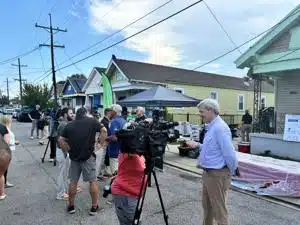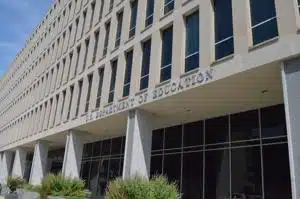(The Center Square) – A coalition of pro-Second Amendment groups, Republican lawmakers and sheriffs in Colorado sent a letter to U.S. Attorney General Pam Bondi making the case for her office to look into gun laws they argue are unconstitutional.
The letter asks Bondi to direct the new Second Amendment Task Force to investigate local and state laws they say infringe on Coloradans’ Second Amendment rights.
“Over the past few years, the State of Colorado and some of its larger cities and political subdivisions have, through a progression of increasingly oppressive and burdensome statutes and ordinances, engaged in a systematic and unrelenting campaign designed to restrict, impair, impede and ultimately extinguish Coloradans’ right to keep and bear arms in violation of our Constitution,” the letter states.
The letter goes on to list off several state laws and municipal codes, with Senate Bill 25-003 at the top of the list. The bill, which Gov. Jared Polis signed into law April 10 but goes into effect in August 2026, bans the manufacture, sale or purchase of semi-automatic rifles and shotguns that take detachable magazines. The law makes an exception for individuals who get a “firearms safety course eligibility card” from local law enforcement and then complete a state-approved firearm education course.
SB 25-003 “impermissibly burdens law-abiding gun owners, erodes self-defense rights, and restricts access to firearms in common use,” the letter says. “It clearly fails to meet the constitutional benchmarks set by the Supreme Court in these cases.”
The letter comes from the Colorado State Shooting Association, Colorado’s Republican congressional delegation, Republican state lawmakers and other Second Amendment advocates. U.S. Rep. Lauren Boebert, one of the letter’s signees, has previously called on the task force to sue over SB 25-003.
The letter also listed off the state’s 6.5% excise tax on firearms and ammunition, the 21-years-of-age purchase requirement and three-day waiting period for firearm purchases, among other state laws. It also lists “assault weapons” bans in Denver and Boulder.
“The Department of Justice has a vital responsibility to protect constitutional liberties, and the Second Amendment Enforcement Task Force is well-equipped to tackle this crisis,” the letter added. “Colorado’s laws not only infringe on our citizens’ rights but also threaten to inspire similar overreach in other states. Swift federal action can once again demonstrate that the Trump Administration stands with the people in defending their constitutionally guaranteed freedoms that the federal government is tasked with preserving.”
Republicans in the Colorado House of Representatives also sent a letter earlier this month urging the task force to review SB 25-003.
A DOJ spokesperson could not confirm the letter’s receipt with The Center Square.
The department in March launched an investigation of the Los Angeles County Sheriff’s Department’s handling of concealed handgun license applications, warning the investigation “will be the first of many similar investigations, lawsuits, or other actions involving other localities in California, the State of California itself, and any other states or localities that insist on unduly burdening, or effectively denying, the Second Amendment rights of their ordinary, law-abiding citizens.”


















































